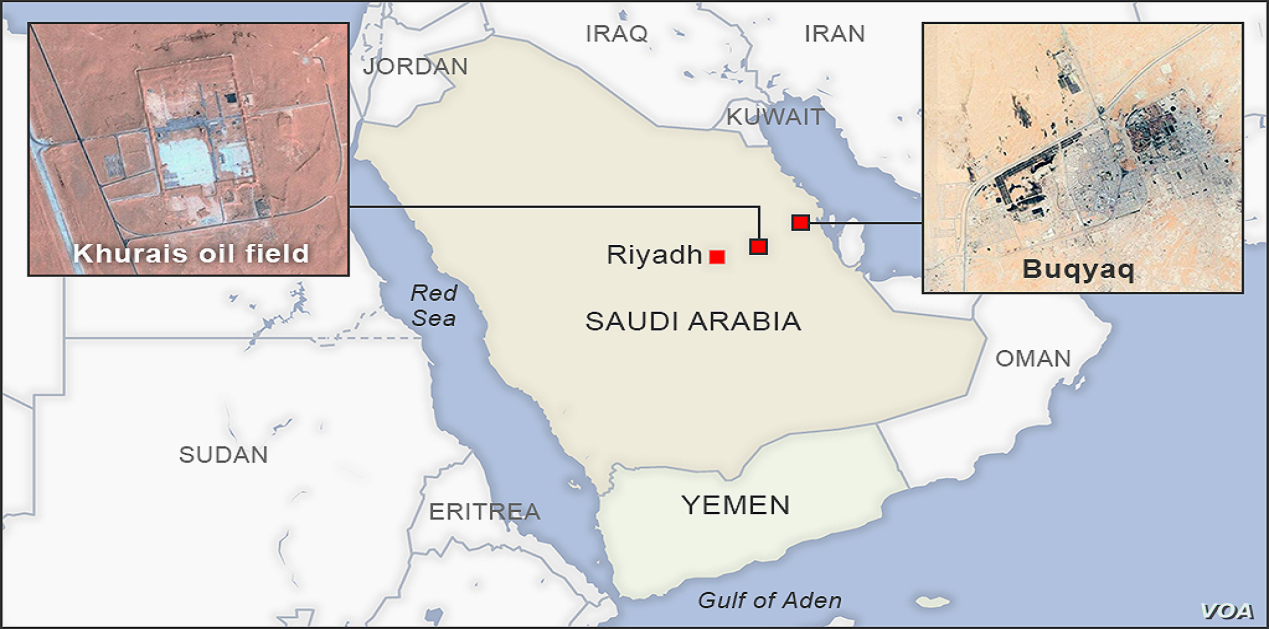Amb D P Srivastava
 The attack on Saudi oil field in Khurais and refinery in Abqaiq on Sunday has knocked out 5.7 million barrel per day of oil supplies. This is half of Saudi daily oil production; it amounts to 5 percent of global oil supply. There have been attacks on the shipping and oil pipe-lines in the recent past in the Gulf. But in terms of scale, this is vastly different. This has the potential of triggering a major conflagration.
The attack on Saudi oil field in Khurais and refinery in Abqaiq on Sunday has knocked out 5.7 million barrel per day of oil supplies. This is half of Saudi daily oil production; it amounts to 5 percent of global oil supply. There have been attacks on the shipping and oil pipe-lines in the recent past in the Gulf. But in terms of scale, this is vastly different. This has the potential of triggering a major conflagration.
Houthi spokesman claimed responsibility for the attack. But US Secretary of State Pompeo has directly blamed Iran. Saudi statements have been more circumspect. They have confirmed the origin of the equipment as Iranian, but stated that they are still investigating the place of launch. UK, France and Germany have not accepted the position that Iran was responsible for the attack. Iran has disclaimed any responsibility for the attack. Foreign Minister Zarif described US statements linking Iran with the attack as expression of ‘maximum deceit’, in an obvious reference to oft repeated description of Trump Administration’s policy of ‘maximum pressure’.
President Trump made a phone call to Saudi Crown Prince immediately after the attack pledging US support. In a tweet, he said that US was ‘locked and loaded’ to respond. In subsequent statements, he mentioned that he has been more cautious. He has maintained that US has many options, and did not rule out the ultimate option of going to war. But he emphasised that he does not want war. The immediate action is President’s directive to the Treasury to come out with more sanctions.
Saudi Energy Minister and ARAMCO officials have promised to restore the oil supply quickly. But media reports indicate that major buyers in India and China have been told that Saudi Arabia will not be able to supply light crude, which will be replaced by heavier grade. Saudi officials were quick to emphasise that the country was a reliable oil supplier. These comments are aimed at calming the apprehension that the country was vulnerable, which would affect the prospects of launching an IPO at $ 2 trillion valuation for the company. This is part of Crown Prince’s drive to raise money to diversify and reduce Kingdom’s dependence upon oil.
Republican Senator Lindsey Graham has asked US to strike against Iranian refinery. A Trump ally, he was critical of President Trump’s decision not to respond to Iranian downing of US drone earlier. This he said has encouraged more aggressive behaviour on part of Iran. President Trump in response to media questions reminded them that past US decision to go into Middle East, and Iraq, did not help the situation.
The incident comes soon after President Trump fired his hawkish National Security Advisor Bolton. This had given rise to hopes that President was clearing the deck for more moderate policies. The fresh escalation has dimmed the prospects. The Republican opinion remains hawkish. The Wall Street Journal in an editorial in fact criticised Trump’s sacking of Bolton. The editorial titled ‘Iran’s Return Handshake’, said the attack has validated Bolton’s judgement, and said that the President might also ‘apologise’ to the NSA he fired.
What is the way forward? The doors to diplomacy may still be open, but political space is narrowing fast. President Trump has stated that he wants to meet President Rouhani during his visit to attend UN General Assembly session. Iran’s Supreme Leader said that that if US ‘repents’, and ‘implements the nuclear deal’ from which they withdrew, then they can take part in talks and negotiations along with other parties to the deal. Otherwise, there will not be any negotiations between the officials of Islamic Republic of Iran and US at any level, either in New York or anywhere. The statement reflects Iran’s anguish on US’s unilateral withdrawal from the nuclear deal which Obama Administration had signed. It also indicates preference for a multilateral frame-work, specifically P 5+1 format in which Russia, China and E-3 (UK, France and Germany) are present.
The Iranian National Security Adviser Admiral Shamkhani has reiterated that Iran wants to resolve issues peacefully, but will give a strong reaction to aggression. FM Zarif has reiterated Supreme Leader’s Statement that there can be no negotiations, unless US returns to the nuclear deal.
Any retaliation against Iran for attack on Saudi facility, on which Iran denies responsibility, would trigger an escalatory dynamics. Sunday attack has shown vulnerability of oil installations to asymmetric warfare. The region supplies nearly 20 percent of world crude oil consumption. There can be no replacement of supplies on this scale. War will spread to other parts of Middle East. In case of India, this affects not only oil supplies, but seven million Indian diaspora in the Gulf region.
No comments:
Post a Comment